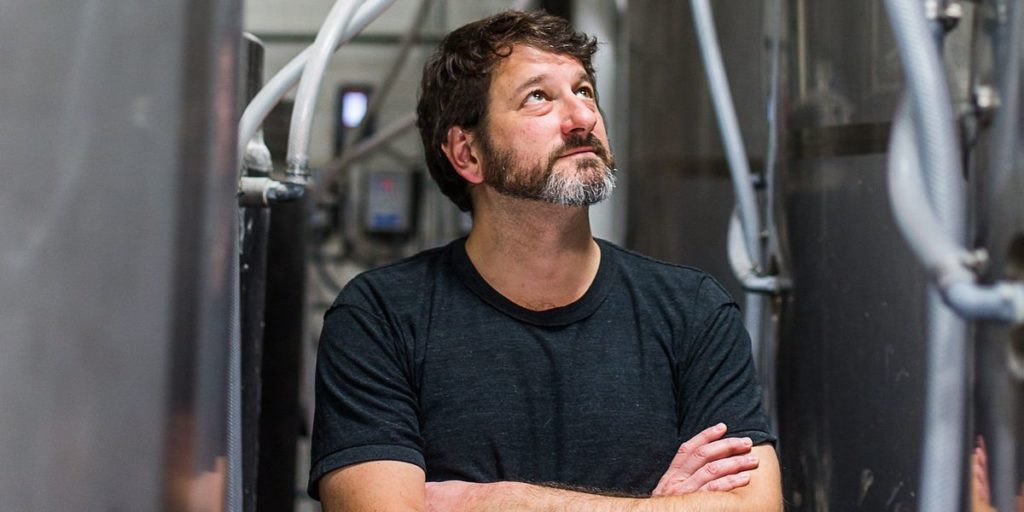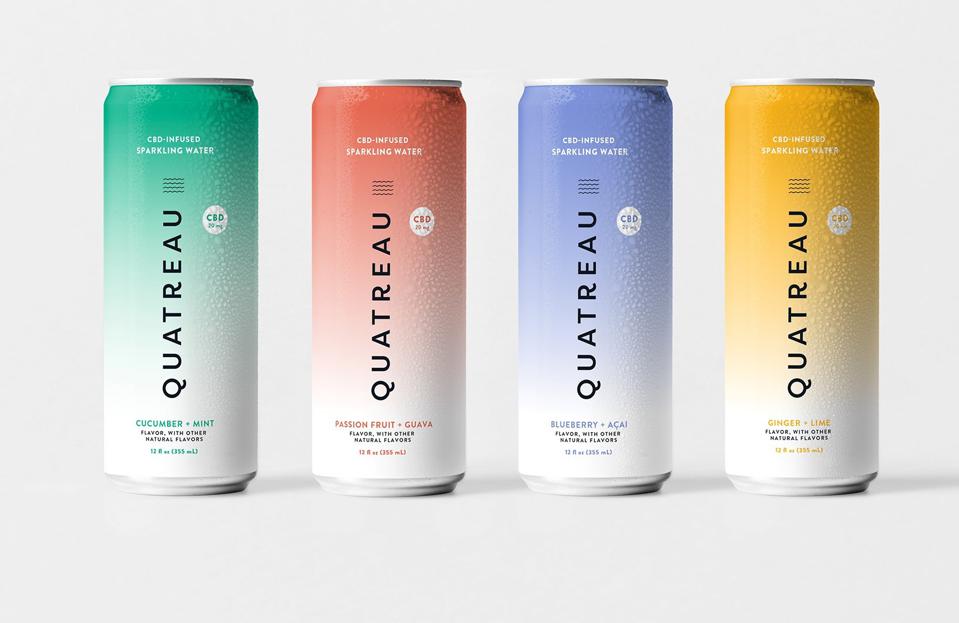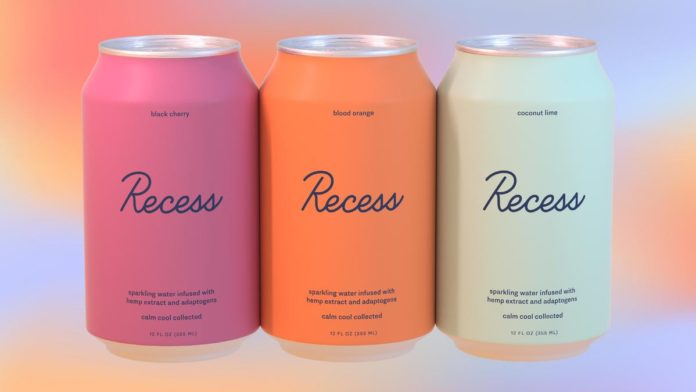As the pro-pot movement continues in America, cannabis beverages remain a fast-emerging trend.
These drinks typically contain the cannabinoids THC or CBD — or a combination of both. Cannabinoids are naturally occurring compounds, of which there are many, found in the cannabis plant. THC and CBD are by far the most common in pot products.
Cannabinoids have a range of affects. As the industry evolves, producers will continue experimenting with these compounds to create a variety of consumption effects. As for the two most common cannabinoids, THC is psychotropic whereas CBD is not. Otherwise, they are thought to share certain effects, such as pain relief and relaxation.
Why Cannabis Beverages?
In a category brimming with different product forms — flower, edibles, ointments, etcetera — why have beverages received so much attention?
One important reason: these drinks let consumers enjoy cannabis in a manner that’s more convenient and inconspicuous.
“If you’re lounging at the pool or somewhere else public, and having one of these products, people can’t tell that you’re drinking a cannabis beverage, versus how obvious it is when you light up a joint,” says Chris Anderson. He’s head of brewing operations at BevZero, a California-based beverage company that produces a number of cannabis drinks.
Anderson sat on a panel at the 2021 American Craft Spirits Association Conference & Trade Show that discussed cannabis beverages. Joining him was Austin Stevenson, chief innovation officer at Vertosa, a leader in cannabis and hemp emulsification. That is the process, improved dramatically in recent years, that blends marijuana extracts with liquid in a commercially viable format.
“We want to create a form factor that is familiar to people,” Stevenson says. Not everybody smokes, but certainly everyone drinks something, alcohol or not.
Beverages also remove many of the drawbacks that people dislike about cannabis consumption.
“There’s a stigma around smoking; not everybody wants to smell it,” Stevenson says. “We also want to overcome the stigma that edibles take too long to kick in, or the people who have had a bad experience from taking too much from a pot brownie in college.”
“New technology allows for the key cannabis extracts to be converted into a liquid that’s soluble and fast-acting, so that the product can be sessionable, predictable and convenient,” he adds.
Rather than 30-45 minutes for an edible to work, liquid products can affect consumers after just five minutes. Instead of an extensive psychotropic experience, these beverages can provide a shorter, milder high. Similar in time-length to a buzz from drinking beer.
The cannabis industry believes these features can help widen the category’s demographics.
“It’s another way to get in front of the non-stoner types of people,” says Anderson. “The people who don’t want to be associated with the smell, or who don’t want to get destroyed by a high dose.”
Beverages also appeal to the growing, broader trend of consumers who want functional drinks. Products like Gatorade or Vitamin Water that conveniently deliver an intended effect. That’s why so many cannabis drinks now come in cans or plastic bottles that look like they’re meant for the gym, hiking or therapeutic purposes.
“We have one brand that has an ‘Awake’ version with uppity effects,” says Anderson. “There’s a ‘Daytime’ version that has no paranoia or ‘couch-lock’ effects. And then there’s a ‘Nighttime’ version, which contains the cannabinoid CDN, that helps with sleep.”
All this points to a segment with the potential for a very bright future.
“I think the cannabis industry is starting to mature, with a lot of room for growth left,” says Paul Hletko, founder of craft spirits pioneer Few Spirits, and cannabis investor through his fund, Sterling Beach. “Professionalism in the industry is skyrocketing, while the infrastructure is growing rapidly to bring out new products and innovations that consumers want to try. This is helping move the cannabis industry towards the front and center.”

Legal Issues for Cannabis Beverages
Cannabis beverages face the same challenges as the rest of the cannabis industry. Legal obstacles and murkiness lurk around nearly every corner.
As THC remains federally illegal, most companies making these products cannot access banking. That requires a cash-only way of doing business.
“It’s beyond frustrating that so many billions are being exchanged daily without some kind of transparency that you see in every other industry,” says Seth Goldberg, partner at Duane Morris. “It really is a public safety issue, leaving aside how it also restraints the cannabis industry.”
To avoid this cash-only problem, larger drinks corporations hold multiple licenses, so that just the cannabis division functions in cash.
Since recreational pot is only legal at state-level, these businesses cannot operate across state lines. That means that marijuana products in multiple states must be licensed brands, produced individually in each state. This can cause consistency problems.
Proper labeling and ingredients are among this segment’s many grey areas in need of continued or expanded government oversight.
“There needs to be more regulations around the ingredients of these beverages, the percentages of THC and CBD and other cannabinoids, what can be said on the labeling and where the beverages can be consumed,” says Goldberg. “Those are regulations that will come about and that will be very important in the expansion of the cannabis market.”
“The big thing with labels is the FDA has focused on the health claims of labels,” he adds. “Any label that suggests a product can alter your physical health or makes a change to your health — like curing insomnia, soothing tremors — those have really been a target for FDA enforcement.”
Then there’s delta-8. In an industry that already occupies a grey area federally, this cannabinoid is perhaps the greyest of all.
In passing the 2018 Farm Bill, the U.S. government officially legalized hemp production. (Hemp and marijuana are two different varieties of the cannabis sativa plant.) As CBD is found in hemp, this helped fuel the rise of CBD products. But the 2018 legislation contained a loophole in that you can also derive delta-8 — which is psychotropic — from hemp.
The amount of delta-8 that occurs naturally in the plant is very small. Some producers use a chemical process to turn hemp into larger amounts of delta-8. As this extract is liquid, you cannot weigh it on a dry-weight basis to check for THC percentages, further skirting by through a grey area. And since this process requires chemicals and is not always performed in the most sanitary of settings, risks emerge for consumers.

“Naturally derived delta-8 products, those are fine,” says Stevenson. “But derived chemically, that’s a risk.”
Properly produced delta-8 is legal in recreational states. The loophole sees production in non-recreational states, like Kentucky, which contains a large hemp-farming industry.
Another grey area: is CBD legal in beverages when nationally distributed?
“Under the Farm Bill, CBD is illegal in food products and technically illegal in beverages, too,” says Ryan Malkin of Malkin Law, and legal counsel to the American Craft Spirits Association. “A lot of these brands are just skating by, under the law. When they get in trouble with the TTB is when they start claiming health benefits. But if they just stick to the CBD in branding, then they can usually skate by.”
“You cannot legally produce liquid product with THC in it,” he adds, clarifying the law for the category. “You cannot have THC, and you cannot have hemp, so you have a lot of hemp-seed products.”
This issue extends into the rightly regulated area of branding.
“You cannot call out the ties to marijuana on the branding,” Malkin says. “You cannot have the leaf or anything suggestive of psychoactive on the label.”
As for the banking problem mentioned above, Malkin points to the SAFE Banking Act. This proposed legislation, currently bouncing around the U.S. Congress, would prohibit federal prosecutors from penalizing financial institutions that provide services for cannabis companies. In other words, the industry would finally have access to banking.
However, this legislation is not guaranteed to pass anytime soon. Plenty of opposition remains in Washington D.C. to the pro-pot movement. Which also means, do not get your hopes up for federal legalization.
“It will be five to ten years for legalization at the federal level,” says Stevenson, “at best.”
Here Comes CBD
Grey area aside, CBD beverages continue to enter the market at a rapid clip. Multiple major distributors signed new partnerships with producers in the past year.
Republic National Distributing Company in summer 2021 announced agreements with the CBD brands DayTrip, Oh Hi, Sati Soda and Wyld CBD. These productss rolled out in Alaska, Colorado, Florida, New Mexico, Oklahoma, Oregon and Texas — where CBD is legal and legislated by the states.
This comes at a time early in the category when no CBD beverage or brand has emerged as a leader.
“RNDC is known for their dominance in wine and spirits distribution and together we look to include our CBD products to that dominating list,” says Wyld CBD CEO Aaron Morris. “This partnership offers strong support to our business as we look to aggressively expand our brands nationally.”
Breakthru Beverage also announced its entry into the CBD space last summer. They partnered with the brand Recess, which is “at the intersection of some of the most significant emerging trends in the industry, including greater consumer focus on mental well-being and the increasing demand for products that reduce stress; the rise of new functional ingredients such as CBD, adaptogens, and magnesium; consumer desire for alternative beverages; and the growth of functional beverages and sparkling water,” says Drew Levinson, Breakthru Beverage Group VP, business development, emerging brands.
Breakthru carries the Recess flagship CBD line and the Recess Mood line in Arizona, Colorado, Florida, Illinois, Virginia and Connecticut through its CDI affiliate — with additional expansion plans in the near future.
In spring 2021, Canopy Growth, a Canadian-based cannabis and CBD company with major investment from Constellation Brands, announced a U.S. distribution partnership with Southern Glazer’s Wine & Spirits.
This followed the launch one month prior of Quatreau, Canopy’s first line of CBD-infused beverages sold in the U.S.

“Through this groundbreaking partnership, we will leverage Southern Glazer’s established distribution network to bring our CBD beverage portfolio to retailers and consumers across the U.S. market,” says Julious Grant, chief commercial officer, Canopy Growth. “Together, we are committed to creating an immediate strategic route to market for Canopy’s premium CBD beverages.”
Quatreau initially distributed to seven states, with additional markets opening up in the months that followed.
“This agreement reinforces our consumer-focused approach to identifying emerging growth areas where we can add value for our customers,” says David Chaplin, chief growth officer, Southern Glazer’s Wine & Spirits.
Others agree.
“I do expect cannabis beverages to have a very big year in 2022 and beyond, because it’s still such a new segment in the cannabis and beverage industry,” says Goldberg. “It brings together two industries that know how to market and distribute products and get into the hands of consumers. It’s a really exciting emerging segment for both industries.”
Kyle Swartz is editor of Cannabis Regulator. Reach him at kswartz@epgmediallc.com or on Twitter @kswartzz.










